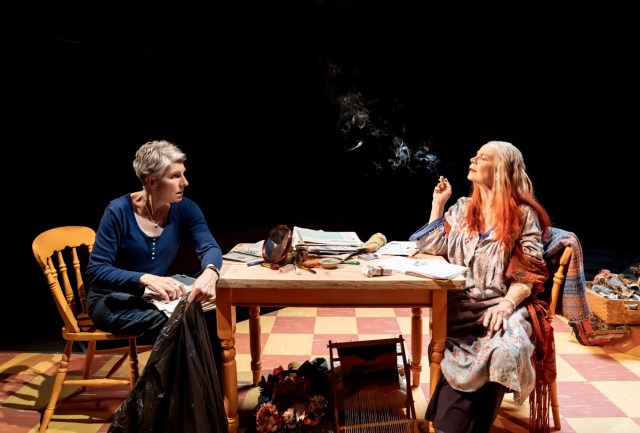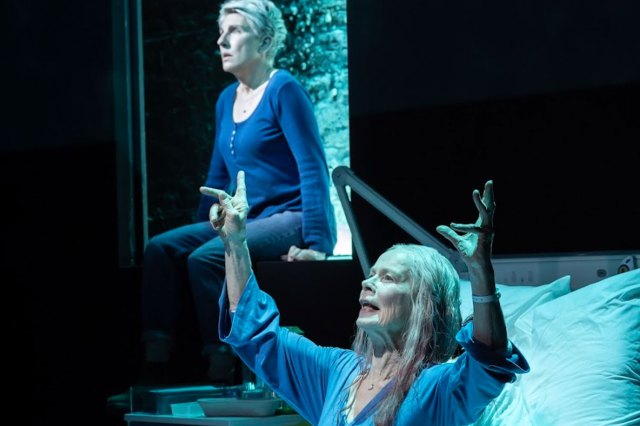Backstroke at Donmar Warehouse review – Celia Imrie and Tamsin Greig are lost at sea
The new play, written and directed by Anna Mackmin, runs until 12 April

So many good people are involved in Anna Mackmin’s new play that it ought to float easily. Celia Imrie and Tamsin Greig, playing a mother and daughter through multiple time periods, are in the hands of an exceptional creative team.
Yet for all their skill, it’s a drama that’s left clinging to the side of the swimming pool, desperately holding on to stop itself from drowning.
The metaphor of a swimming lesson, which gives the play its title, only appears in the second half of a drama that from the very start seems weighed down by too many disparate ideas and too much heavy baggage. It is semi-autobiographical, and Mackmin, still perhaps best known as a director rather than a writer, has covered similar ground before in her debut novel Devoured, which used her upbringing on a commune in Norfolk as its inspiration.
Here again, the mother figure, now called Beth, is both a role model and a burden, a creative free spirit whose self-absorption, combined with her agoraphobia and various other ailments, turns her only daughter into the adult in the relationship. In one scene, we realise it is the girl – Bo – who is driving them to the sea when she is only 13.

Later, when the mother gets both dementia and a series of strokes, Bo’s role as carer continues, but now she is a harassed representative of the sandwich generation, burdened by a difficult and needy adopted daughter as well as by a mother with whom her relationship has never been smooth.
A hospital bed dominates Lez Brotherston’s set where for long periods Imrie lies immobile, long hair with pink ends streaming. The action unfolds through a string of memories, enacted in the run-down kitchen at the front of the space complete with Aga and cluttered wooden table. On the back wall is a screen which both opens to conjure Bo’s unconventional swimming lessons and serves as a surface on which to project Gino Ricardo Green’s videos of childhood memories and current terrors that haunt Bo’s life. The films provide most of the context for the drama, though various nurses and doctors come and go.
Gradually, and quite slowly, a picture of Beth and Bo down the years emerges: the constant needling about food, weight and age; the dependency and the co-dependency they create. Some scenes are sharply funny, and Imrie is gifted with some great lines. “I think poetry is merely list writing masquerading as art,” she muses at one point. At another she counsels: “Do not allow the bad fairy blame down the chimney.”
These eccentricities have the smack of reality and Imrie seizes them with relish. Greig has a tougher time. Her character, at all ages, is principally angry, dowdy and put upon. Try as she might, it’s hard to inject much variation into the constant theme of worry. Only towards the close, do we really glimpse the better aspects of her relationship with her tiring, demanding mother.
All the extraneous detail should add depth to Mackmin’s themes. But oddly it burdens them – and Bo’s own daughter, seen on film, feels like a plot point to emphasise an exploration of motherly love that never quite surfaces through all the tangential ripples. Part of the problem is that Mackmin the director doesn’t tell Mackmin the writer when enough is enough. Everything is given equal honour and nothing ever reaches clear water. A disappointment.


















